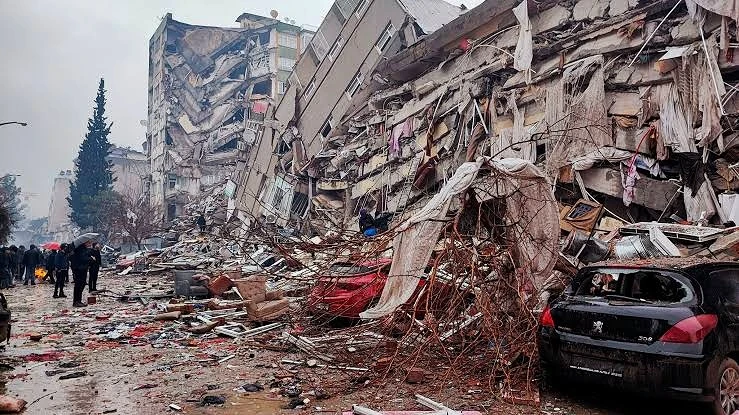Experts have warned that people in the region hit by the devastating earthquake in Turkey may be susceptible to respiratory diseases in the short or long term due to construction dust, and if spread could lead to public health problem as it contains asbestos.
“Inhalation of construction dust generated during debris removal or rescue efforts may cause some fungal infections to settle in the lungs,” Tevfik Özlü, a professor from Karadeniz Technical University (KTÜ) was quoted as saying, stressing that those with lung diseases may be more vulnerable.
He therefore warned people that has a history of respiratory problems such as chronic bronchitis, COPD, asthma or pulmonary hardening to stay away from dusty environments to avoid permanent fungal infections that may occur due to the dust they breathe.
Although most of the collapsed buildings were old ones which contained asbestos which has been banned in Turkey since 2010 and other dangerous substances, the earthquake also destroyed some new buildings.
Read also: Indonesian govt, International Partners Introduces Energy Transition Partnership
A large amount of dust is dispersed into the atmosphere during debris removal or demolition of damaged buildings, Mehmet Şeyhmus Ensari, the head of the Asbestos Dismantling Experts Association (ASUD) was quoted as saying .
He noted that the operators, demolition team and debris workers are primarily exposed to these dusts, as environmental and public health problems may arise with the spread of dust to the citizens watching the demolitions and warned that there may be other dangerous substances in the dust that can cause diseases apart from asbestos in the dusts.
Ensari stressed that people around, especially the teams involved in the demolition, should use dust masks alongside a ‘dust suppressor’ machine used in demolitions, which creates a fog cloud allowing airborne dust to descend to the ground without spreading and called for irrigation to be carried out during the operations to reduce the effect of the removed dust.
“We need to prevent another disaster from occurring after the earthquake. The dust emitted in the environment cannot be prevented 100 percent, but the suffering of the people there should be minimized,” he said.
Story was adapted from Hürriyet Daily News
